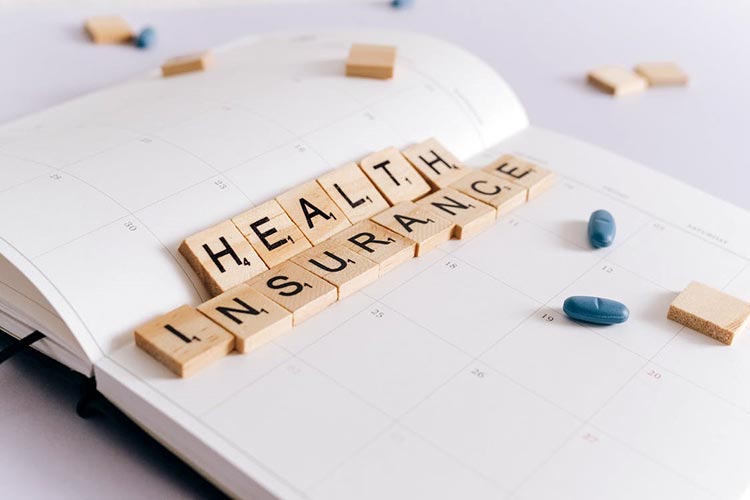Can You Use Health Insurance for Treatment After a Car Accident?

Magnuson Lowell Blog
Each week we post a blog about relevant legal issues. Glance through our various topics to learn more about a particular legal situation.
These articles are for limited informational purposes only and are not, nor are they intended to be, legal advice. You should not rely on this information for your case and should consult with an attorney for advice regarding your individual situation.
Most Recent Posts ...
Posted on: 3/31/2025
Posted on: 3/24/2025
Posted on: 3/17/2025
Posted on: 3/10/2025
Search All Blog Posts
Blog Post Archive Categories
- Reconciling After a Divorce Filing
- Dividing Retirement in Divorce - Do I Need a QDRO?
- Options for Dealing with Real Estate in Your Washington State Divorce
- Positive Thoughts After Losing a Family Law Motion
- Supervised Visitation for Washington Parenting Plans: What You Need to Know
- Filing for Immediate Restraining Orders in King County
- (Redmond/Criminal Defense) Time Matters for a DUI
- (Redmond/Criminal Defense) Field Sobriety Tests - What Not to Do
- (Redmond/Criminal Defense) - The (Redmond/Criminal Defense) - The Ability to Remain Silent
- Battling Father Time: Crafting Your Legacy with Precision
- Tips for Talking to Your Family About Your Estate Plan
- How to Choose Your Personal Representative for your Will
- What is a Trial Continuance in Washington State?
- Renewing a Domestic Violence Protection Order in Washington State
- Little Known Washington Driving Laws
- Divorce Mediation Tips for High-Conflict Couples
- Dealing with Small Business During a Divorce
- The Role of Financial Advisors in High-Asset Divorces
- Why Expediency is Important After Your Car Accident
- Understanding Independent Medical Examinations (IMEs) in Washington State
- It only takes 3 seconds...
- Gotta love our court system!
- (Redmond/Crazy Lawsuit) The Walking Dead: or Not!
- (Redmond/Crazy Lawsuit) Here Comes Football - and Litigation
- Honoring Our Heroes: A Thank You to All Who Have Served!
- Happy Halloween from Magnuson Lowell
- 10 Tips You Need To Know Before Getting On A Motorcycle
- Top 10 Tips You Need To Know Before Getting On A Motorcycle
- Top 10 Tips Riders Need To Know Before Getting On A Motorcycle
- In a Car Collision...Now What?
Can You Use Health Insurance for Treatment After a Car Accident?

Yes! But, there may be better options first. Whether through your employer, the state, or the federal government, most everyone will have access to health insurance to pay medical expenses associated with car accident treatment. That financial support may be crucial to ensure you are able to secure necessary medical appointments to help relieve you of pain and suffering. What insurance should be used to pay for these medical bills? How do I go about using my insurance? These are all questions your attorney can answer specifically about your case, but here are a few common issues to understand.
PIP – Auto Insurance
Before using any other type of insurance your auto insurance carrier should offer to pay medical bills using Personal Injury Protection insurance. In Washington, PIP is mandatory in all auto policies unless explicitly waived when the policy is purchased. What this means is that most insurance policies have available a minimum of $10,000 of deductible and co-pay free medical care after being injured in an accident. You must fill out a PIP application and there are certain restrictions. This can be an inexpensive way to receive necessary care to help improve your symptoms after a crash.
Medicare, Medicaid, Private and State Health Insurance
Both Medicare and Medicaid are managed by the federal government. Private health insurance is often purchased through your employer. Washington state also offers public health insurance policies. Either way, getting started with treatment is easy. If there is no PIP available, you should be able to continue treating with your normal providers who can bill your regular policy directly.
L&I – Employer Insurance
If you are injured on the job, the Department of Labor and Industries may provide medical expense payments on your behalf. You’ll need to specifically apply with the help of your employer to access L&I. The department will help manage your claim, pay your bills, and reimburse you for costs. They keep a substantial level of control over your treatment, and they are keen to cut off expenses.
Subrogation – Paying Back your Insurer
If you are successful in making a personal injury claim, you will be compensated for your past paid medical bills, future medical expenses, wage loss, and your non-economic pain and suffering. If an insurer outlined above paid any money on your behalf towards your medical bills and you were compensated for those medical bills from the liability insurer, it’s likely you will owe a repayment obligation to your health insurer. Fortunately, you will only owe what they paid out on your behalf. Meaning that if Medicare pays thirty cents on the dollar, you only owe a small portion of what was actually charged. Moreover, PIP policies require a discount under Washington law if you hire an attorney to help reach that award. So, while you are required to repay these policies, there are laws and rules available to reduce those obligations and keep more money in your pocket.
If you’ve been involved in a motor vehicle accident and have suffered injuries, understanding your rights and obligations regarding insurance is key. The experienced team at the law offices of Magnuson Lowell PS are ready and available to answer your questions and seek justice from the at fault insurance companies. Call today for a free case evaluation.




